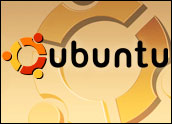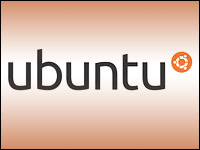
Ubuntu will not be joining the list of open source OS and productivity suits recently linked to MS through interoperability deals, said Ubuntu founder and Canonical CEO Mark Shuttleworth.
“We have declined to discuss any agreement with Microsoft under the threat of unspecified patent infringements,” Shuttleworth stated in a Saturday blog entry.
Threats Won’t Work
Agreements Linspire, Novell and Xandros signed with Microsoft included the software giant’s assurance that it would not pursue patent infringement litigation against those firms.
In all three deals, the companies agreed to work together to make their software packages more compatible. However, Microsoft recently asserted that open source operating system Linux infringes on patents held by Microsoft and that open source companies should make agreements with Microsoft to continue to use it.
Shuttleworth has been unabashedly critical of Microsoft’s claims.”Allegations of ‘infringement of unspecified patents’ carry no weight whatsoever. We don’t think they have any legal merit, and they are no incentive for us to work with Microsoft on any of the wonderful things we could do together.”
Who Banged the Drum First?
The recent uproar in the open source community about Microsoft’s claims, though, ignores an important chapter in the community’s history, Laura DiDio, research fellow with Yankee Group, told LinuxInsider.
“Some of the stuff coming out of the open source community about Microsoft and the patent infringement issues is very disingenuous,” she asserted. “Four years ago, the people banging the drum about patent infringement were in the open source community.”
Back in 2004, said DiDio, then-fledging insurance firm Open Source Risk Management commissioned a study to determine just how many patents Linux may infringe upon. At that time, the number was pinned at 280 or so, most of them owned by IBM, with about 30 held by Microsoft.
The now-infamous study was conducted by Pamela Jones of Groklaw, according to DiDio, and its methods and conflicts have drawn much comment since then.
Still, the open source community itself was the first to raise the issue of how much Linux actually overlapped, in terms of intellectual property, with proprietary software, DiDio asserted.
Business as Usual
In fact, she said, the thousands of lines of code in operating systems — proprietary or not — cannot help but show similarities and outright identical sections. The 30-year life of software for desktop computers and servers simply ensures that overlaps have occurred.
What the companies making agreements with Microsoft are doing, then, is simply conducting business. Managing the risk of doing business in the software world is just business as usual, DiDio asserts, and nothing more malignant than observing the rules of corporate behavior.
Shuttleworth himself places the emphasis of his announcement not on the open source nature of his company’s software, but on the fact that it’s distributed for free.
“In the Ubuntu community, we believe that the freedom in free software is what’s powerful, not the openness of the code,” Shuttleworth stated. Still, he says of the agreements recently inked, “All the deals announced so far strike me as ‘trinkets in exchange for air kisses.’ Mua mua. No thanks.”



















































